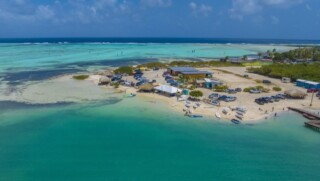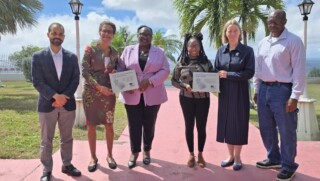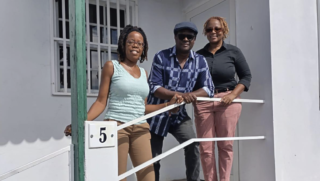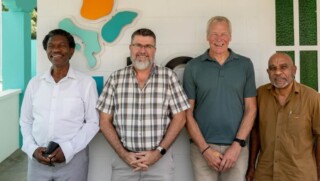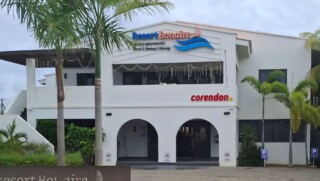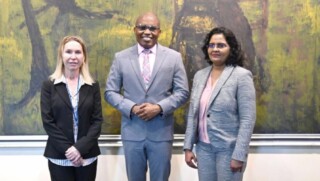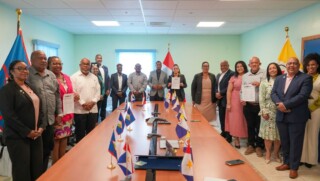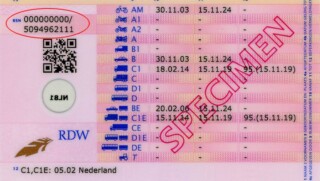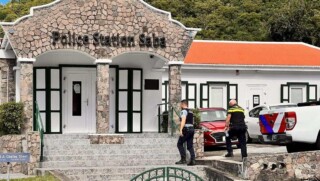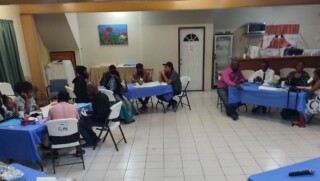Letter by Van Putten: Correcting the Kingdom
Oranjestad, March 3rd, 2019
Dear Editor,
With reference to my letter to you which was published on January 21st, 2019, I would like to state the following.
Since 2015, both the Dutch Senate (“Eerste Kamer”) and Parliament (“Tweede Kamer”) have received a considerable amount of correspondence from both the Legislative and Executive branches of the legitimate and democratically elected Government of Sint Eustatius regarding the relationship between Sint Eustatius and the Netherlands.
Unfortunately, none of the representatives of either esteemed House (with the exception of Member of Parliament Mr. Klaas Dijkhoff) have ever formally responded to- nor acknowledged receipt of said correspondence from the Government of Sint Eustatius, or engaged in direct dialogue with my colleagues and I as duly elected representatives of the people of Sint Eustatius, despite the fact that their members are the duly elected representatives of the people of the Netherlands, and supposedly those of Sint Eustatius as well.
What did happen, is that certain representatives of both esteemed Houses spoke about Sint Eustatius, and to the people of Sint Eustatius via de media.
In said correspondence, the Government of Sint Eustatius has, among other things, cautioned the Government of the Netherlands against unnecessarily tarnishing the reputation of both the Kingdom of the Netherlands in its entirety, and its individual Governments by violating and/or failing to uphold international law in its decision-making process.
Unfortunately, the Government of the Netherlands did not take heed of our warnings. As a result, the legitimate government of Sint Eustatius was forced to take the Government of the Netherlands to court on two occasions for refusing to comply with the right of the people of Sint Eustatius to its UN-mandated right to self-determination and a full measure of self-government.
These fundamental rights which constitute the foundation of the international rule of law are enshrined in the UN Charter, and clearly underline the UN’s commitment to the complete eradication of colonization in any shape or form. They are reinforced and detailed by relevant UN resolutions, and as such have been acknowledged by the Government of the Netherlands.
Unfortunately, and without seeking direct consultations with the legitimate Government of Sint Eustatius, both esteemed Houses unanimously supported the decision of the Government of the Netherlands to violate international law by decapitating the legitimate, democratically elected Government of Sint Eustatius on February 7th, 2019, and preventing free and fair elections for the Island Council to take place on Sint Eustatius on March 20th, 2019.
As a result, the Dutch Court, and if need be ultimately the international Courts, will now decide if the Dutch Government has fully decolonized the Dutch Caribbean in accordance with article 73 a, b, c, and d of the UN Charter, or if it is (still) in violation of international law for preventing Sint Eustatius from achieving a full measure of self-government and having its own, democratically elected, (local) government.
In the meantime, another consequence of the decision-making process of the Government of the Netherlands during the past decades has put it in the position of having to publicly give account about-, and reconsider its actions and responsibilities within the Kingdom of the Netherlands regarding human rights, and the autonomy and extent of the full measure of self-government enjoyed by the Dutch Caribbean part of the Kingdom of the Netherlands.
In this respect, three recent developments are of particular interest.
The first one is the proposal by Dutch Member of Parliament Mr. André Bosman to amend the “Statuut”, to which I referred in the mentioned article. Mr. Bosman’s proposal, and earlier comments he made on the matter, acknowledge that the Netherlands has not finalized the process of decolonization of the Dutch Caribbean.
This implies that the Dutch Caribbean still has not been given a full measure of self-government by the Netherlands as its colonizer, and that the people of the islands have not yet fully exercised their right to self-determination in accordance with the UN Charter and relevant resolutions
Secondly, I recall the recent decision of the Public Prosecutor (OM) regarding the detention of persons in the facilities on Sint Maarten, which facilities don’t meet the required standards. Not surprisingly, this decision came right after the letter of the Netherlands Institute for Human Rights (“College voor de rechten van de mens”) to the Council of Europe regarding the judgment of the European Court for Human Rights in the “Corallo” case. Right after that judgment was served to the Government of the Netherlands, the Dutch Parliament insisted that State Secretary Knops send the bill resulting from the case to the Government of Sint Maarten for payment, citing the latter’s “autonomy” and responsibility for the justice system.
However, the aforementioned recent decision by the OM confirms that the Government of the Netherlands is for all intents and purposes in charge of the justice chain on Sint Maarten, as pointed out recently by lawyer Mr. Peppie Sulvaran.
Thirdly, I took note of the address of Dutch Minister Kaag of Foreign Affairs to the Human Rights Council on February 26th, 2019, as she announced the “Netherlands’ candidacy for a seat on the Human Rights Council (HRC) for the 2020-2022 term”.
Reading Mrs. Kaag’s address, and the many references to democracy, human rights, and the rule of law, it is hard to imagine that she represents the same Dutch government that has dealt with the Dutch Caribbean in the manner it has during the past decades, including its recent stance regarding the situation in Venezuela and its effects related to refugees reaching the Dutch Caribbean islands.
Furthermore, as Mr. René Zwart of Koninkrijksrelaties.nu has so astutely observed, Mrs. Kaag clearly referred to “the Netherlands”, and not “the Kingdom of the Netherlands” when addressing the HRC.In conclusion, and looking at these three recent developments, I am again calling for high level consultations of the legitimate Governments of the Dutch Caribbean and the Netherlands in the first half of 2019. These consultations should have as their primary objective making amendments to the legal structure of the Kingdom of the Netherlands, in order to bring it in compliance with international law by concluding the decolonization process of the Dutch Caribbean.
Clyde van Putten/Island Council Member and Leader of the Coalition Government of Sint Eustatius

